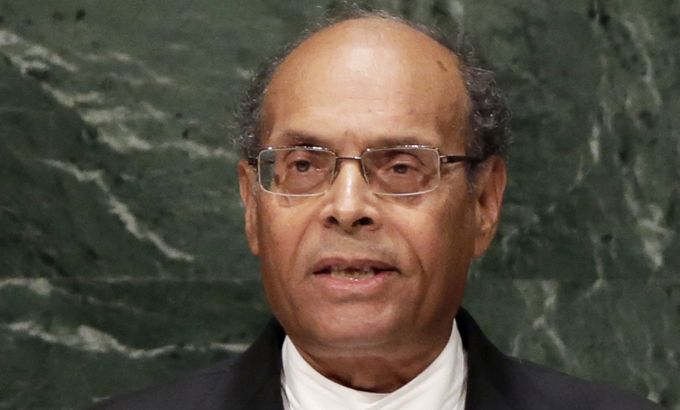
Moncef Marzouki: The challenge of terrorism
Tunisia’s president discusses whether his country can remain an island of stability in a troubled Middle East.
While the changes brought about by the Arab Spring are increasingly displaced by disappointment and sectarian violence around the Middle East, it is perhaps remarkable that the only place where democracy seems to be taking root is where it all began – Tunisia.
If Tunisia fails, the whole democratic process in the Arab world will be finished for probably a century or more.
But surrounded by hostilities – from factions in Libya fighting for control, to a public beheading performed by Islamist extremists in Algeria – Tunisia is becoming in island in an increasingly uncertain dangerous sea of political upheaval and instability.
Keep reading
list of 1 itemAt the United Nations last week, Tunisian President Moncef Marzouki held up as a shining example, or exception, that not all news from the Middle East is bad.
But look under the surface, and you will find that many people in Tunisia are not taking future success for granted and think democracy is still at risk.
“Many countries are helping us to build up the military and also our security forces to face the challenge of the terrorists …. I feel that the West is quite convinced that Tunisia should be the success story that is badly needed in this region,” says Marzouki.
Marzouki, who lived in exile as an outsider and human rights advocate, has just decided to run for office again in the upcoming elections. But will elections be democratic and peaceful? And can Tunisia remain an island of stability in a troubled Middle East?
On Talk to Al Jazeera, the Tunisian president explains why he thinks the country still needs him and talks about the upcoming elections, the threat of religious extremism, and the future of his country.
“I think my job is not finished, I have been a human rights activist for more than three decades and I really struggled for this peaceful revolution … I think the revolution is still threatened by the counter-revolution and also because I think we didn’t finish the job. This is why I’m determined to stay in office to combat for the second part of the revolution.”